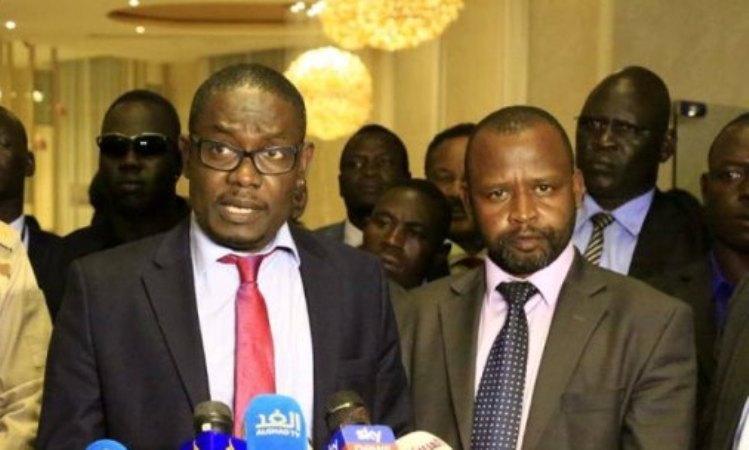Sudan accepts primacy of peace agreements over transitional constitution

February 17, 2020 (JUBA) – The Sudanese government negotiating delegation Monday declared accepting the demand of the Sudanese Revolutionary Front (SRF) to include the would-be signed peace agreements in the transitional constitution and amend it in case of conflict between the two documents.
On Monday, the government and the RSF inked the extension of the talks for three weeks, bypassing the transitional constitution which provides to achieve peace in the country within the first six months of the transition.
The government negotiating delegation headed by Mohamed Hassan al-Taishi, who is a member of the Transitional Sovereign Council and a negotiating team of the RDF Darfur on Monday held two sessions that dealt with the issues of power in the Darfur region and its relations central authority.
In statements to the media after the evening session in Juba, al-Taishi said that the talks dealt with issues of power-sharing and the future interaction between peace agreement and the constitutional document.
“We agreed on the primacy of peace agreements over the constitutional document in case of conflict between them,” he said pointing to the importance of peace for the Sudanese people and the stability of the transitional period.
The SRF groups continued to demand the supremacy of peace agreements to ensure the implementation of the peace agreement.
When the Forces for Freedom and Change and the Transitional Military Council agreed on the Constitutional Declaration in August 2019, the SRF voiced a strong reservation on the document at the time saying they were excluded from negotiations with the military council.
The forces of freedom and change had given the green light to this request in a previous meeting held last week between them and the Revolutionary Front in Juba, as it was agreed to extend the transitional period.
The head of the government negotiating delegation with Darfur groups added that the two parties are now negotiating the governance system during the transitional period to address the historical imbalanced between the centre and the regions, which is one of the grievances of the regions that suffered from marginalization in Sudan.
He revealed that the government proposed returning to the system of regions stressing on the need to find a new formula to address the relationship between the region and the centre away from previous solutions that did not address the root causes of the marginalization.
For his part, the South Sudanese mediator Dhieu Matouk announced that the two parties agreed on many issues related to the power-sharing chapter. He added that negotiations will continue on Tuesday to discuss the remaining points on the matter.
He pointed to the necessity to speed up the negotiations on the Darfur track and to conclude itas soon as possible.
Matouk expected that a joint committee to discuss the appointment of governors and the formation of the Transitional Legislative Council will start on Tuesday. He said it is composed of five members of each side.
The SRF continues to voice its opposition to the appointment of governors before the signing of a comprehensive peace agreement.
The armed groups say they want to take part in the process and that nominate some of the 18 governors from their ranks.
(ST)
